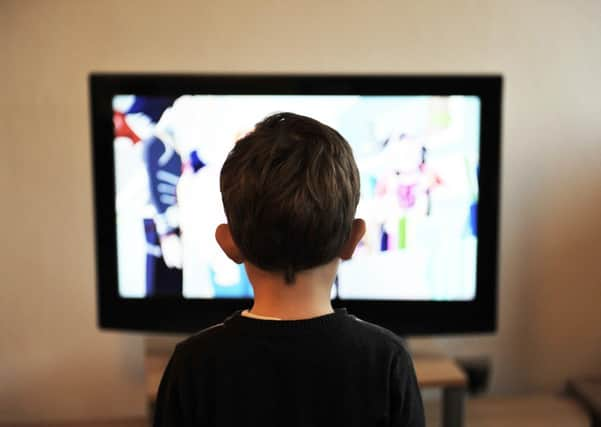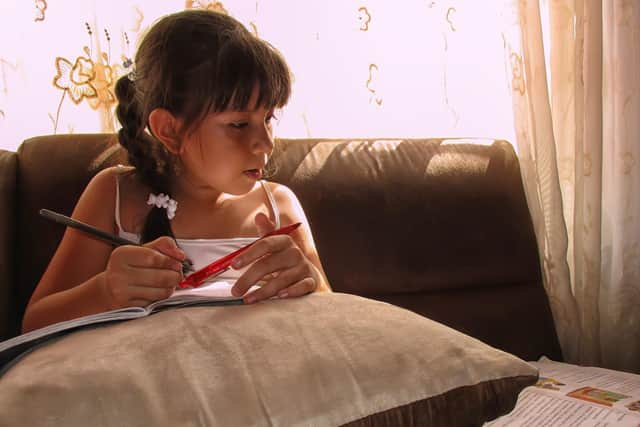Home education brings challenges in second round of school closures


One of the biggest challenges is providing children with laptops to complete the online work set by their teachers and enable them to attend online classes.
Back in May 2020, East Sussex County Council, having realised the need to provide laptops for vulnerable and disadvantaged children, started to roll out a scheme.
Advertisement
Hide AdAdvertisement
Hide AdThe county council welcomed the arrival of a shipment of more than 1,000 free laptops and was the first authority in the country to place an order under a Department for Education (DfE) scheme aimed at ensuring children and young people who receive social care from the local authority and disadvantaged year 10 pupils can continue learning at home during the coronavirus lockdown.


It was also one of the first authorities in the country to receive the new equipment, taking delivery of 1,187 laptops and 170 4G dongles.
These devices were delivered to children and young people who receive social care from the council, while a further order has been made for laptops for disadvantaged year 10 pupils.
When the IT equipment was ordered and delivered by the council, councillor Bob Standley, East Sussex County council lead member for education and inclusion, said: “It’s vital that all our young people are able to maintain their education during the lockdown.“The scheme means vulnerable and disadvantaged children who wouldn’t otherwise be able to do so can get online and continue learning at home until they’re able to return to school.
Advertisement
Hide AdAdvertisement
Hide Ad“It’s going to make a real difference to their lives and will give a boost to their education in the extraordinary times we’re living in.


“I’ve been really impressed by how our children’s services and IT teams worked together to make this happen and to ensure we are one of the first areas of the country to benefit from this initiative.”
Under the DfE scheme, the council also placed an order for 129 laptops for disadvantaged year 10 pupils in its maintained schools.
Meanwhile, working with national body Uni Connect and Hastings Opportunity Area – which aims to boost social mobility through education – the council secured funding for an additional 200 laptops for disadvantaged Year 10 pupils at maintained schools and academies across the county.
Advertisement
Hide AdAdvertisement
Hide AdThis week, following the most recent school closures, an East Sussex County Council spokesman said: “We are continuing to support schools to deliver remote learning. Schools were required, during the autumn term, to get remote learning plans in place and all schools are encouraged to adhere to the DfE’s remote learning principles.”
Since the start of the 2020/21 academic year the DfE has allowed schools to order laptops directly rather than through the local authority, to ensure they get to those in greatest need as effectively as possible.
Following the announcement last week about further laptops becoming available, the DfE will provide more information to schools, colleges, trusts and local authorities about this during the spring term 2021.
In figures released by the DfE we are able to see how many devices have been delivered or dispatched to academy trusts or directly to schools within a trust for 2020 to 2021 academic year.
Advertisement
Hide AdAdvertisement
Hide AdThe data shows 453 laptops and tablets were delivered to local authority schools in 2020 to 2021 academic year
The Swale Academies Trust, which includes a number of East Sussex schools received 1,230 devices. Shinewater Primary School, Langney Primary School, Parkland Infant and Junior school, The Causeway, Eastbourne Academy and Peacehaven Community School are all within the Swale Academies Trust. Seaford Head Academy Trust received 11 devices and Hailsham Community College received 99. Hastings High School received 31.
Schools have been providing a range of content for children via various educational programmes and Google Classroom. Some are providing live lessons, others recorded videos and some just online work. The provision varies but psychologists who undertook a study into the home learning experience of families during school closures in the spring 2020 have published their guidance to schools planning home learning in response to the 2021 national lockdown.
Following in-depth online interviews with parents and children in July and August 2020, Alison Lacey and Dr Kathryn Lester from the School of Psychology at the University of Sussex have identified four key areas for schools to focus home learning support in order to enhance the wellbeing of families during this new period of home schooling.
Advertisement
Hide AdAdvertisement
Hide AdThe study concluded the priorities should be contact, creative home learning content and community. Psychologists said being connected to teachers and peers was key to child wellbeing during school closures. They also found there was great variability in school home learning provision during the 2020 lockdown.
The study, which is one of the only to capture children’s perspectives about the impact of school closures, included interviews with 21 families across Sussex.
Alison Lacey, a doctoral researcher in developmental psychology at the University of Sussex, said: “What this study has highlighted is that the lack of guidance and support for schools during the first period of school closures in 2020 led to huge variability in provision. During these interviews we identified some key areas for schools to consider that could improve the experience for children and parents.
“The voices of young children have largely gone unheard in the political debate around Covid-19. It is essential that schools are supported by policy makers to implement consistent home learning provision that meets children’s social and emotional needs as well as the academic learning needs of the children in their care.”
Advertisement
Hide AdAdvertisement
Hide AdOverall, the psychologists found that providing a sense of community through regular live online connection with teachers and peers was most highly valued by children and parents. Conversely, the study found children who did not have regular opportunities to engage with their teachers and peers reported feeling isolated and lonely, trying to navigate home learning.